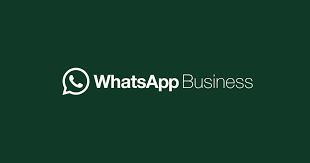WhatsApp’s Role in Enhancing Customer Experience
Customer Experience (CX) is no longer a nice-to-have but a necessity. A staggering 86% of buyers are willing to pay more for a better customer experience, making it a competitive differentiator for businesses across industries.
This shift has brought about a revolution in how companies interact with their customers, and messaging apps like WhatsApp are playing a pivotal role in this transformation.
WhatsApp is no longer just for keeping in touch with friends and family, it’s become a cornerstone for customer engagement, offering businesses the ability to connect with customers on a personal level. As businesses shift towards conversational commerce and instant gratification, WhatsApp is emerging as a game-changer.
This blog post will traverse how WhatsApp can significantly enhance customer experience through instant communication, personalised interactions, automation, and the ability to share rich media. With WhatsApp, businesses can build stronger relationships with their customers, boost engagement, and foster loyalty.
Let’s examine how WhatsApp is helping businesses meet evolving customer expectations and why features such as real-time messaging, personalisation, and automation are key to improving customer experience.
The Rise and Need of Customer Expectations

customer expectations have tended to shift dramatically with so many trends and technological inventions. Gone are the days when customers were satisfied with just phone calls and emails.
Today, customers expect immediate, personalised responses. Research shows that 75% of consumers expect a response within five minutes of contacting a business, and WhatsApp offers businesses the tools to meet these demands.
The rise of e-commerce, social media, and mobile apps has trained consumers to expect seamless, omnichannel experiences. Customers now want the flexibility to communicate through their preferred channels whether that’s email, social media, or messaging apps like WhatsApp.
#1. Omnichannel Experience
WhatsApp, with its ubiquity and ease of use, fits perfectly into the omnichannel communication model.
By making use of WhatsApp into their communication strategy, businesses can provide customers with a seamless transition between channels.
For example, a customer could initiate a conversation via a website chatbot and continue the dialogue on WhatsApp, with no disruption in service.
#2. Convenience is Key
Convenience is the foundation of customer satisfaction. WhatsApp allows businesses to offer 24/7 customer service, giving customers the freedom to ask questions or raise concerns at any time, from anywhere in the world.
With instant messaging, businesses can keep up with the growing demand for real-time communication.
How WhatsApp Improves Customer Communication
It is important to know the level at which WhatsApp can Improve Customer Communication. Here are ways this can be achieved:
#1. Instant Messaging:
One of WhatsApp’s primary benefits is the speed at which it facilitates communication. Customers expect quick responses, and WhatsApp’s instant messaging capabilities allow businesses to meet these expectations.
Whether it’s answering product inquiries, addressing complaints, or providing real-time order updates, WhatsApp enables businesses to respond promptly, reducing wait times and increasing customer satisfaction.
For instance, a customer who faces an issue with a product can instantly message the company on WhatsApp, bypassing the delays typically associated with email or call centers.
In this way, WhatsApp not only enhances customer service but also helps businesses resolve issues faster, reducing customer churn.
#2. Real-Time Support:
Beyond instant messaging, WhatsApp allows businesses to offer real-time support. Whether it’s resolving technical issues, answering billing queries, or guiding customers through a service, the ability to provide immediate assistance greatly enhances customer experience.
Real-time support helps create a sense of responsiveness and reliability, both key elements in building trust with customers.
#3. Two-Way Communication:
WhatsApp’s format encourages two-way communication, making it easier for customers to reach out with questions or concerns, while businesses can respond in a personalised manner.
This level of interactivity fosters meaningful engagement, strengthening the customer-business relationship.
#4. Seamless Cross-Device Communication:
One of the advantages of WhatsApp is its cross-platform compatibility, which allows customers to communicate with businesses seamlessly across various devices, be it smartphones, tablets, or desktop computers.
This functionality ensures that customers can stay connected with businesses regardless of their device, offering flexibility and convenience. It also allows businesses to continue conversations from where they left off, maintaining continuity and enhancing the overall customer experience.
For instance, a customer may initiate a query on their mobile phone during a commute and follow up on their desktop later without any disruption. This continuous flow of communication improves user experience and ensures that businesses are always reachable, no matter the device being used.
#5. Group Communication for Team-Based Support:
WhatsApp also supports group chats, enabling businesses to involve multiple team members in a single customer conversation when needed.
This feature can be particularly useful for technical support or project-based services where expertise from different team members is required.
Group communication ensures that all relevant stakeholders can collaborate efficiently, providing comprehensive and timely assistance to customers.
For example, if a customer is experiencing a complex technical issue, a support agent can quickly add a technical specialist to the group chat.
This speeds up the resolution process and provides the customer with a seamless, collaborative service experience, all in one place. This level of coordinated service improves response accuracy and boosts customer satisfaction.
WhatsApp Business Features for Enhanced Customer Experience

WhatsApp Business offers a suite of features designed to enhance customer experience and streamline communication.
Here are six essential features that can help businesses improve their customer interactions and overall satisfaction.
#1. Business Profile
WhatsApp Business enables businesses to create a professional profile that shares vital information, such as business hours, location, and website links. This feature provides customers with quick access to essential details, enhancing their overall experience.
A well-crafted business profile adds credibility, ensuring customers know they are engaging with a legitimate entity. Furthermore, this information helps customers make informed decisions without the need to reach out for basic queries, saving time for both parties.
#2. Quick Replies
Businesses often encounter common customer queries regarding pricing, shipping, or product features. WhatsApp’s Quick Replies feature allows businesses to save and reuse frequently sent messages, improving response time and customer satisfaction.
Through predefined responses, businesses can handle customer inquiries more efficiently while maintaining high-quality service. This feature not only accelerates communication but also ensures consistency in responses, reinforcing brand reliability.
#3. Labels for Organization
To further enhance customer experience, WhatsApp Business allows businesses to categorise customers and conversations with labels. Labels such as “new customer,” “order pending,” or “VIP” help businesses stay organised and ensure timely follow-ups.
This systematic approach simplifies managing customer interactions and provides personalised service. By segmenting conversations, businesses can tailor their messaging based on customer status or needs, fostering a more engaging experience.
#4. Message Statistics
WhatsApp provides valuable insights through message statistics, showing data on sent, delivered, and read messages. Businesses can use this data to measure engagement, track customer interaction rates, and optimise their communication strategies.
Understanding how customers engage with their messages enables businesses to tailor their communication, ensuring that they address customer needs effectively.
For example, if a business notices that a particular message type has low engagement, they can adjust their messaging or explore alternative approaches to connect better with their audience.
#5. Automated Messages
Automated messages are another powerful feature of WhatsApp Business that enhances customer experience. Businesses can set up automated greetings, away messages, and quick responses to frequently asked questions. This ensures that customers receive immediate acknowledgment of their inquiries, even when the business is unavailable.
For instance, an automated greeting can welcome customers when they first reach out, providing essential information and setting the tone for future interactions. This feature not only improves customer satisfaction but also helps businesses manage expectations regarding response times.
#6. Catalogues and Product Showcases
WhatsApp Business allows businesses to create catalogues that showcase their products or services directly within the app. This feature enables customers to browse offerings without leaving the chat, enhancing the shopping experience.
Providing detailed product descriptions, images, and pricing, businesses can make it easier for customers to explore their options and make informed purchasing decisions. This seamless integration of e-commerce within the messaging platform not only boosts convenience for customers but also increases sales opportunities for businesses.
Personalisation with WhatsApp
In an increasingly competitive market, personalisation has emerged as a crucial element in fostering customer engagement and loyalty. WhatsApp provides several features that enable businesses to tailor their communication and create meaningful connections with their customers.
Here are five key aspects of personalisation with WhatsApp:
#1. Personalised Communication
Personalised communication is essential for making customers feel valued and understood. WhatsApp allows businesses to send tailored messages that address customers by name and offer products or services based on their individual preferences.
For instance, a customer who frequently buys athletic wear may receive recommendations for new arrivals or exclusive discounts on fitness apparel. This personal touch creates a sense of connection and demonstrates that the business is attentive to the customer’s needs, which is critical for building long-term loyalty.
Moreover, personalised messages can extend beyond promotional content. Businesses can share relevant content, such as articles, tips, or how-to guides that align with a customer’s interests.
Leveraging the power of personalisation, businesses can enhance customer experiences, drive engagement, and ultimately increase the likelihood of repeat purchases.
#2. Customer Segmentation
WhatsApp’s Business API provides businesses with the ability to segment their customer base effectively. This feature allows companies to send tailored messages to specific groups, ensuring that the content is relevant to each recipient.
For example, a clothing retailer might segment their audience into groups based on previous purchases, such as men’s clothing, women’s clothing, or accessories.
This targeted approach enables businesses to deliver more relevant promotions and announcements that resonate with each customer segment.
By employing customer segmentation, businesses can craft messaging that speaks directly to the interests and preferences of different groups, increasing engagement and conversion rates.
For instance, a fitness brand might send workout tips and product recommendations specifically to customers who have purchased gym equipment, while targeting those who have bought athleisure wear with lifestyle content. This relevance significantly enhances customer satisfaction and fosters a sense of loyalty to the brand.
#3. Building Customer Loyalty
WhatsApp provides a unique platform for businesses to strengthen their connection with customers and encourage repeat purchases through personalisation. By sending personalised offers, reminders, or even birthday wishes, businesses can create memorable experiences that resonate with their audience.
For example, a coffee shop might send a personalised message with a discount on a customer’s favourite drink to celebrate their birthday, making the customer feel appreciated and valued.
Additionally, businesses can use WhatsApp to follow up with customers after a purchase, asking for feedback or offering additional recommendations based on their buying history.
This proactive engagement shows customers that the business cares about their experience, further solidifying their loyalty. Personalisation, when executed effectively, becomes a powerful tool for nurturing long-term relationships with customers and driving repeat business.
#4. Targeted Promotions
Targeted promotions are an effective way for businesses to enhance personalisation through WhatsApp. By analysing customer data, businesses can create tailored promotions that appeal to specific segments of their audience.
For instance, a travel agency might send exclusive holiday deals to customers who have previously booked beach vacations, while offering adventure travel discounts to those interested in hiking and outdoor activities.
This level of targeting not only improves the relevance of promotional content but also increases the likelihood of conversion. When customers receive offers that align with their preferences and past behaviours, they are more likely to engage and make a purchase.
This strategy enhances the overall customer experience by making them feel that the brand understands their needs and desires.
#5. Real-Time Interaction
WhatsApp allows for real-time interaction between businesses and customers, creating opportunities for instant feedback and support. This immediacy can enhance personalisation by allowing businesses to respond to customer inquiries and concerns as they arise.
For example, if a customer is interested in a specific product but has questions, they can reach out via WhatsApp, and the business can provide immediate assistance tailored to that customer’s needs.
Furthermore, real-time interaction can facilitate dynamic conversations, enabling businesses to adjust their messaging and offers based on customer feedback during the interaction. This adaptability not only improves customer satisfaction but also helps businesses gather valuable insights into customer preferences, which can be used for future personalisation efforts.
Automation and Chatbots: Scaling Customer Interactions

#1. WhatsApp Chatbots:
As businesses grow, managing customer interactions manually becomes increasingly difficult. WhatsApp chatbots are a solution to this challenge, allowing businesses to automate common tasks such as answering FAQs, booking appointments, or providing order updates.
By automating routine interactions, businesses can handle a higher volume of customer inquiries without sacrificing the quality of service.
#2. 24/7 Availability:
Customers today expect businesses to be available around the clock. WhatsApp chatbots offer businesses the ability to provide 24/7 support, ensuring that customer inquiries are addressed even when human agents are not available.
This level of availability improves customer satisfaction and ensures that no customer is left waiting for a response.
#3. Proactive Communication:
WhatsApp chatbots can also be used for proactive communication. Businesses can send automated reminders, follow-ups, or updates on orders, keeping customers informed without requiring manual effort.
Proactive communication enhances the customer experience by anticipating customer needs and providing information before customers even have to ask.
Enhancing Customer Experience through Rich Media
#1. Multimedia Support:
WhatsApp’s ability to support multimedia such as images, videos, documents, and location sharing enables businesses to create richer, more engaging customer interactions.
Whether it’s a product demonstration video or a brochure, multimedia support helps businesses provide more detailed and helpful responses to customer inquiries.
#2. Product Demos and Tutorials:
Businesses can use WhatsApp to send video tutorials or product demonstrations directly to customers, helping them understand how to use products or services.
This visual approach enhances the customer experience by making complex information easier to digest and increasing customer satisfaction.
#3. Problem-Solving with Multimedia:
In customer support scenarios, multimedia can be invaluable. For example, if a customer is having trouble with a product, they can send a photo or video of the issue via WhatsApp, allowing the business to provide a more accurate and helpful response.
This reduces the back-and-forth that often occurs in customer service and leads to quicker resolutions.
WhatsApp for Customer Feedback and Surveys
#1. Gathering Feedback:
Customer feedback is crucial for businesses to understand how they’re performing and where they can improve.
WhatsApp makes it easy for businesses to collect feedback through surveys or simply by asking customers to share their thoughts after an interaction. The casual, conversational nature of WhatsApp encourages customers to provide honest feedback.
#2. Improving Services:
The feedback gathered via WhatsApp can be used to refine customer service processes, improve product offerings, and better meet customer expectations.
Acting on feedback, businesses show customers that their opinions matter, further enhancing the customer experience.
#3. Two-Way Feedback:
Unlike more traditional feedback methods, WhatsApp allows for real-time, two-way conversations. Businesses can acknowledge customer feedback immediately, address concerns on the spot, or even thank customers for positive feedback.
This level of responsiveness is key to creating a positive customer experience.
Conclusion
WhatsApp is transforming customer experience through instant communication, personalisation, automation, and rich media support. The platform allows businesses to meet evolving customer expectations by providing fast, convenient, and engaging interactions.
Businesses looking to enhance their customer experience should consider integrating WhatsApp into their communication strategy. With its vast user base and powerful business features, WhatsApp is an essential tool for building stronger customer relationships and boosting brand loyalty.

